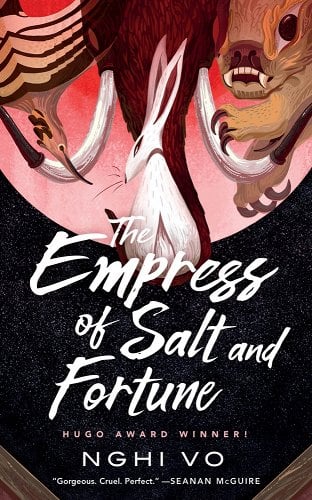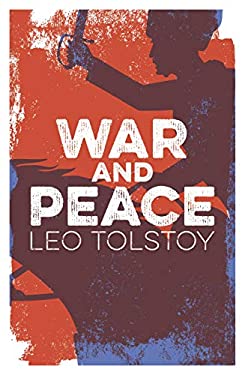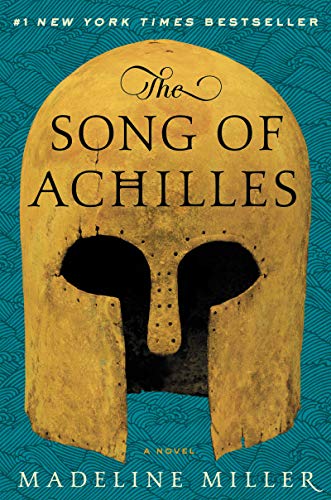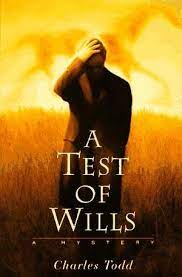|
The Empress of Salt and Fortune is a hell of a good book, the first of a series of four historical fantasy novellas by Nghi Vo. You know from the start it's going to be good because the main character is an archivist. As a cleric, Chih is responsible for recording oral history. Their interviewee is an older woman, Rabbit, who recalls attending the empress in her youth.
Some people are good writers and some people are good storytellers and the overlap of those two groups is not as big as you might expect. Vo does both things right. The style of the prose is pitch-perfect. The rhythms and inflections make you feel like you're sitting by the fire. The plot is palace intrigue and adventure and scheming. It's hard not to compare Vo to Becky Chambers, who also writes a speculative fiction series of character-driven novellas with a nonbinary protagonist, starting with A Psalm for the Wild-Built. I was also reminded of Leigh Bardugo's fable-inflected prose. Or you could compare it to Friend Green Tomatoes. A member of the younger generation interviews an older woman who recalls her friendship with another woman. They struggle to survive in a world run by abusive men, and you can never fully decide whether they were friends or lovers. (That's the movie. It's been decades, but if I recall correctly, their relationship in the movie was ambiguous and their relationship in the book was Yep We're Lesbians Now). This hit all the right notes. I need to finish listening to Cindy Kay narrate the rest of the series (I'm in book 2 currently) so I may have to skip next week's book talk. Actually yeah, that's a good idea regardless. I'm traveling to North Carolina for a few days next week, so it's a convenient time for a break. Everyone enjoy the first day of decorative gourd season!
0 Comments
I read Leo Tolstoy's War and Peace.💅 I started microdosing it daily on January 1st and finished all 921 pages this morning.
I devoured Anna Karenina as a teenager, but I I was not expecting that same breeziness here (if a lengthy Russian novel about adultery can be said to be breezy). One of my college professors once told me that Tolstoy was embarrassed by the melodrama in Anna Karenina and considered the more serious War and Peace to be his masterpiece. There is a small bit of truth to this. Let's get that out of the way. Tolstoy occasionally interrupts his narrative to, I am sorry there is no other verb for this, pontificate. He'll end a battle scene on a thrilling cliffhanger, then spend a couple of chapters talking philosophy. Tolstoy loves to criticize the historians of the Napoleonic era. He does not merely do history. He does historiography. But leaving aside those digressions: this book is a damn soap opera. We've got affairs, gambling, botched abortions, pistols at dawn, secret societies, heirs vying for fortunes, peacetime deaths, wartime deaths, love triangles, broken engagements, controlling fathers, and bigamy. The only thing missing is a premature burial. I read the translation by Richard Pevear and Larissa Volokhonsky (ISBN 978-1-78888-652-9, Sirius Publishing, part of Arcturus Publishing). If you'd rather watch the movie, there have been a ton of adaptations. I haven't seen any, but when I was getting started and still trying to keep the characters straight in my head, I kept looking up images from the BBC adaptation, and the costuming is gorgeous. I am glad I can finally settle that question that every person must ask of themselves: Dostoevsky or Tolstoy? I am #TeamDostoevsky. While I enjoyed War and Peace immensely (the melodrama parts , at any rate), The Brothers Karamazov will never be dethroned. Maybe, unlike me, you paid attention during the section on classical Greek literature in high school English. Perhaps you were not bored by Edith Hamilton's Mythology, a standard classroom text that takes exciting stories and neuters them with lifeless prose.
(I am working off memories from a quarter century ago, so if you would like to defend Hamilton from my slander, I am willing to listen.) Madeline Miller is the glorious opposite of that experience. She is astonishingly good: taut prose, rich atmosphere, tight plotting, and characters who feel like real people. The Song of Achilles is told from the perspective of Patroclus, who is banished after accidentally killing another child. He is exiled to the court of Peleus, whose son Achilles is preternaturally beautiful and athletic. This can happen when your mother is a goddess. Patroclus and Achilles become friends and eventually lovers. If you know The Illiad, you know how this story goes. They sail to Troy to make war after Helen runs away with (or is kidnapped by?) Paris. Prophecy says the Greeks can't win the war without Achilles... but prophecy also says Achilles is fated to die there. This is an exceptionally good book, centered around a grueling war and a queer love story that you want to succeed, even though you it will end in tragedy. And Frazer Douglas's narration of the audiobook is stellar. A version of this post originally appeared on April 29, 2023.
I enjoy the occasional mystery, but I'm no aficionado. That would be my mother. Imagine my surprise when I was able to introduce her to the Inspector Ian Rutledge series, starting with A Test of Wills. After serving in the Great War, the inspector has returned to Scotland Yard, now with a bad case of shell shock. He is haunted by Hamish, a man he killed, though he dare not tell anyone. Societal attitudes toward PTSD in 2023 are still bad, but back then it was tantamount to moral failure and cowardice. Now Rutledge must resume his career with Hamish intruding in his thoughts. Charles Todd (pseudonym for mother/son team Caroline and Charles Todd) knows how to write a British mystery. In the early chapters, Rutledge drives from London to a stately old English manor. He exits the car and notices a curtain twitching on the second floor. You can picture it, can't you? You've seen this a hundred times on the BBC. And the first person Rutledge interviews is a beautiful woman who seems to be keeping secrets. One quibble: occasionally the point-of-view character (usually Rutledge, sometimes others) will see someone's facial expression and deduce a range of precise emotions, something like "her eyes flashed, and he could sense indecision mixed with grief and anger." That's borderline cheating as a way to give information to the POV character. I'm not singling out Charles Todd: loads of authors do this, and it's hardly the gravest sin. Another quibble: on a plausibility scale, where 1 is The Butler Did It and 10 is It Was Aliens, this book comes in at 9. I consulted my mother (who inhaled the whole series within a week) and she says the other mysteries are similarly difficult for the reader to solve. If you're okay with outlandish explanations, there's a whole bunch of books in this series to enjoy. I listened to the first one on audio, narrated by Samuel Gilles. |
Book talks
When Covid first hit, I started doing book talks on social media as a way to keep in touch with people. I never got out of the habit. I don't discuss books by my clients, and if I don't like a book, I won't discuss it at all. While I will sometimes focus on craft or offer gentle critical perspectives, as a matter of professional courtesy, I don't trash writers. Unless they're dead. Then the gloves come off. Archives
February 2024
Tags
All
|





 RSS Feed
RSS Feed